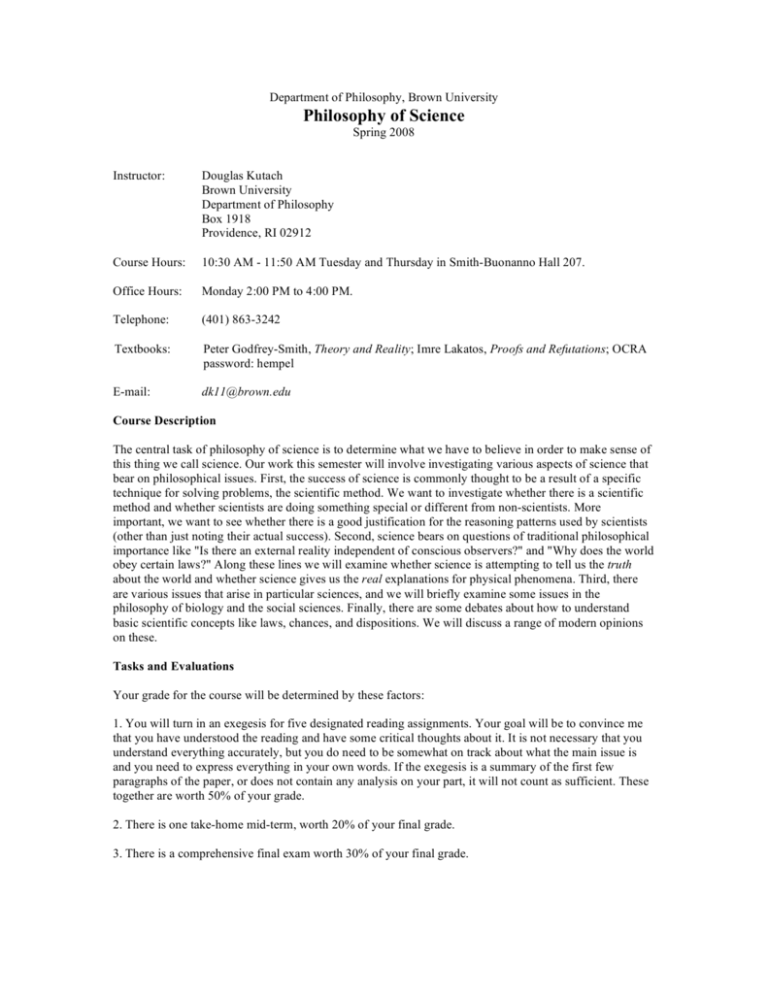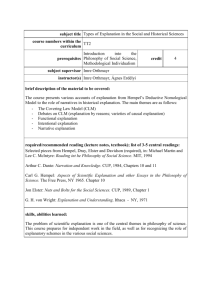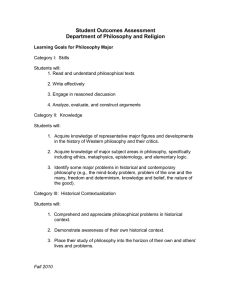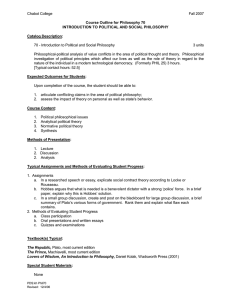Syllabus
advertisement

Department of Philosophy, Brown University Philosophy of Science Spring 2008 Instructor: Douglas Kutach Brown University Department of Philosophy Box 1918 Providence, RI 02912 Course Hours: 10:30 AM - 11:50 AM Tuesday and Thursday in Smith-Buonanno Hall 207. Office Hours: Monday 2:00 PM to 4:00 PM. Telephone: (401) 863-3242 Textbooks: Peter Godfrey-Smith, Theory and Reality; Imre Lakatos, Proofs and Refutations; OCRA password: hempel E-mail: dk11@brown.edu Course Description The central task of philosophy of science is to determine what we have to believe in order to make sense of this thing we call science. Our work this semester will involve investigating various aspects of science that bear on philosophical issues. First, the success of science is commonly thought to be a result of a specific technique for solving problems, the scientific method. We want to investigate whether there is a scientific method and whether scientists are doing something special or different from non-scientists. More important, we want to see whether there is a good justification for the reasoning patterns used by scientists (other than just noting their actual success). Second, science bears on questions of traditional philosophical importance like "Is there an external reality independent of conscious observers?" and "Why does the world obey certain laws?" Along these lines we will examine whether science is attempting to tell us the truth about the world and whether science gives us the real explanations for physical phenomena. Third, there are various issues that arise in particular sciences, and we will briefly examine some issues in the philosophy of biology and the social sciences. Finally, there are some debates about how to understand basic scientific concepts like laws, chances, and dispositions. We will discuss a range of modern opinions on these. Tasks and Evaluations Your grade for the course will be determined by these factors: 1. You will turn in an exegesis for five designated reading assignments. Your goal will be to convince me that you have understood the reading and have some critical thoughts about it. It is not necessary that you understand everything accurately, but you do need to be somewhat on track about what the main issue is and you need to express everything in your own words. If the exegesis is a summary of the first few paragraphs of the paper, or does not contain any analysis on your part, it will not count as sufficient. These together are worth 50% of your grade. 2. There is one take-home mid-term, worth 20% of your final grade. 3. There is a comprehensive final exam worth 30% of your final grade.











